Master’s thesis: International graduates want to remain in Denmark, but find out too late
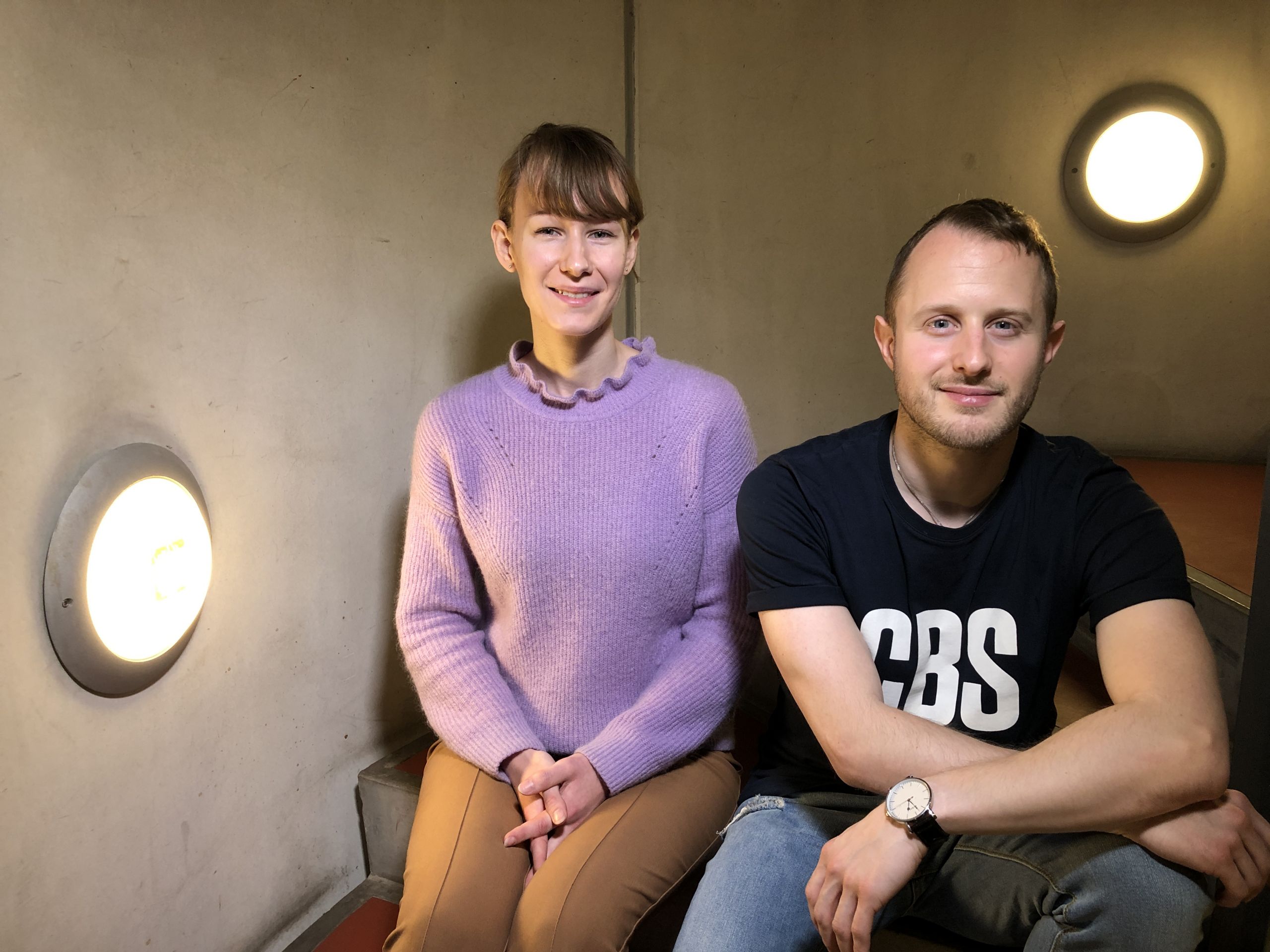
Zita Guldhammer Wolff and David Aterini have investigated international CBS students experiences with finding a job in Denmark. Their findings are in alignment with other surveys, point out the Dean's Representative for International Talent Retention. (Photo: Anne M. Lykkegaard)
71 percent of international students at CBS want to stay in Denmark after graduating, but not finding a relevant student job in time can thwart their plans, a CBS master’s thesis shows. Right now, a global research project with CBS participation is helping to clarify international students’ experiences and needs.
When Davide Aterini came from Italy to study his master’s degree in International Business Communication at CBS in 2017, he not only had to become familiar with Copenhagen, he also had to make new friends and get accustomed to a new academic culture. On top of that, he needed a student job. A relevant one, that is.
He attended different career-related events, fairs, talks and other CBS initiatives, but still had no luck in finding a job. And finally the point arrived when the boat had sailed, as companies would only hire students they could employ for a year or more.
He discussed the challenges with friends, both international students and Danes, and eventually ended up joining forces with his Danish classmate, Zita Guldhammer Wolff, to write a master’s thesis that further explores both the challenges international students face when job hunting and the initiatives CBS offers.
“During the thesis project, I realized I wasn’t the only one struggling. Only 37 percent of the respondents had a relevant student job, but 90 percent were looking for one, our results showed,” says Davide Aterini.
In total, 104 international CBS students from English-taught programs answered the questionnaire, and Davide Aterini and Zita Guldhammer Wolff conducted in-depth interviews with nine students about their needs and experiences with finding a job. And while, according to figures from the Ministry of Higher Education and Science, two out of three international students leave Denmark less than two years after graduation, Davide Aterini and Zita Guldhammer Wolff’s thesis shows that 71 percent of the students they have surveyed, want to stay.
“About 23 percent of the students come to Denmark with the intention of staying after graduation, while 48 percent find out during their studies that they want to stay. That shows that CBS changes people’s minds about staying in Denmark. But these international students could use more support to help them create careers here,” says Davide Aterini.
And landing a student job that’s relevant for your studies is often a key to getting a job after graduation, which is why students should consider much earlier that a career in Denmark is also an option, explains Tom Dahl-Østergaard, The Dean’s Representative for International Talent Retention at CBS, after reading the thesis.
“The results of this thesis and other surveys show that we need to inform the students earlier on that it’s important for them to think about getting a study-relevant job soon after arriving at CBS, even if they do not plan to stay after graduation. But when is a good time to do that?” he asks and continues:
“When they arrive, they have plenty to think about such as finding accommodation, making friends, figuring out the academic culture, and understanding all the information they are being bombarded with.”
It’s fantastic when students, and others, explore this topic and produce knowledge about it, because we need such insight in order to solve these issues
Tom Dahl-Østergaard
On the subject of finding a job soon after arriving in Denmark, Davide Aterini says:
“I didn’t know that getting a relevant student job fast was so important, and that you almost need to look for jobs even before coming to Denmark.”
Connect companies and students better
Davide Aterini and Zita Guldhammer Wolff also asked the students in the survey to rate the career-oriented services and initiatives CBS offers, and explain what they think they need in order to find a job.
For example, the international students do not believe Career Fairs are that useful when it comes to finding a job.
“The purpose of Career Fairs is to connect students with companies and see what jobs they offer. However, the international students have a feeling that there are not many relevant jobs for them, and that it’s more about branding the companies,” says Zita Guldhammer Wolff.
Furthermore, the international students would also like closer collaboration with companies throughout their studies. This could include case work, projects and thesis work, as well as mandatory internships to expand their networks and links with the Danish labor market.
“The international students don’t know about the Danish working culture or the flat hierarchy. They only get such insights and learn what to emphasize in job applications later on after actually working with Danish companies,” says Davide Aterini.
Although the results from Davide Aterini and Zita Guldhammer Wolff’s master’s thesis are not representative for CBS as a whole, they are in alignment with similar survey results, according to Tom Dahl-Østergaard, who is thrilled that the students have taken up the topic in a master’s thesis.

“It’s fantastic when students, and others, explore this topic and produce knowledge about it, because we need such insight in order to solve these issues. And luckily, their results point towards the same struggles and solutions as those shown in our own data. For example, that we need to focus more on the practice oriented aspects in the programs,” he says.
International student’s experiences from a global perspective
Davide Aterini and Zita Guldhammer Wolff’s study clarifies some of the international students’ experiences and shows how they struggle with finding a job. However, their conclusions about studying abroad are also of interest to others.
Professor Anne-Marie Søderberg, from the Department of Management, Society and Communication at CBS, is part of an international research project covering 13 countries, including Australia, Canada, France, Mexico, Poland, the UK and the US. This project aims to understand why students decide to study abroad and their experiences with it.
“More students than ever are studying abroad. In 2017 it was 5.3 million. And it also adds prestige to receive international students and send students on exchange. For some countries, like the UK, exchange students are an entire industry. But we need to understand why the students even go abroad and what they experience, so we can make their stays even better,” she says.
Right now, she is gathering data from international students at CBS via a survey, to be followed with in-depth interviews. (Check out the Fact box if you want to contribute)
For example, Anne-Marie Søderberg wishes to know what students think of the attempts being made to integrate them properly, and what they do themselves to learn Danish, to collaborate with Danish students, and be embedded in a Danish environment, and whether they are getting a student job and planning to stay after graduation.
“CBS has a learning culture where we value a focus on problems and critical thinking. Students are more than welcome to discuss what the teachers say, and perhaps some students find it difficult to adjust to our ways of studying and learning,” she says and continues:
“Hopefully, when th international study is complete, it can be useful for CBS to see what the organization and the teachers tend to take for granted and what they should perhaps be more attentive about explaining to international students.”
For Davide Aterini and Zita Guldhammer Wolff, they hope their survey and results can be of use to CBS in its future work on encouraging international graduates to stay in Denmark.
“When we embarked on the project, we wished to shed light on CBS’ employability issue and we hope the results can bring some insights for future research on the topic,” says Zita Guldhammer Wolff.



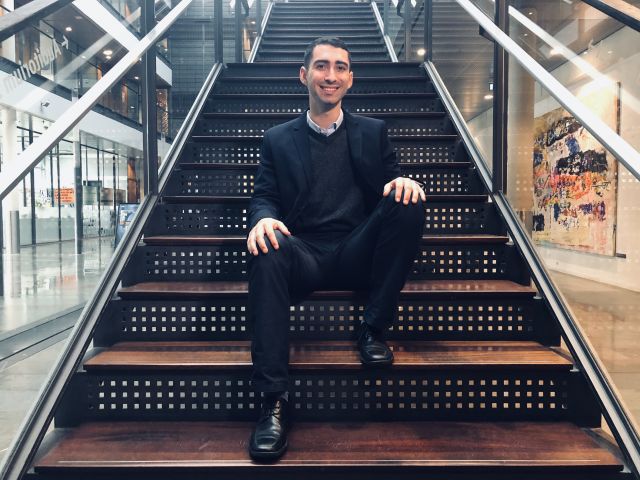
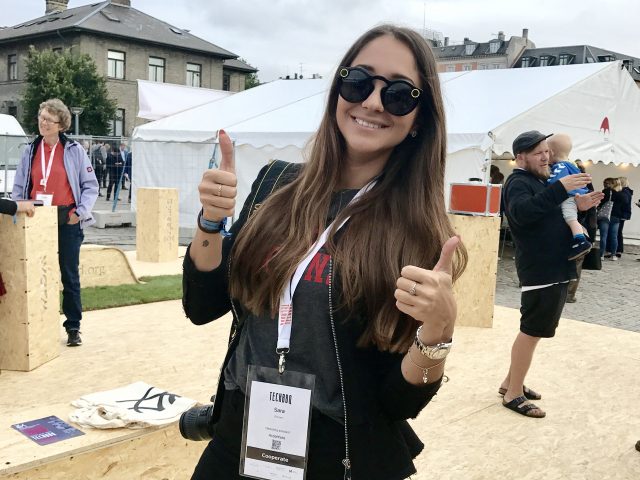
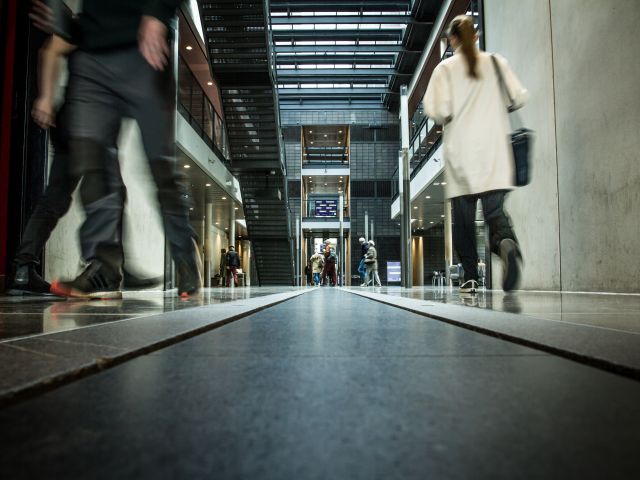
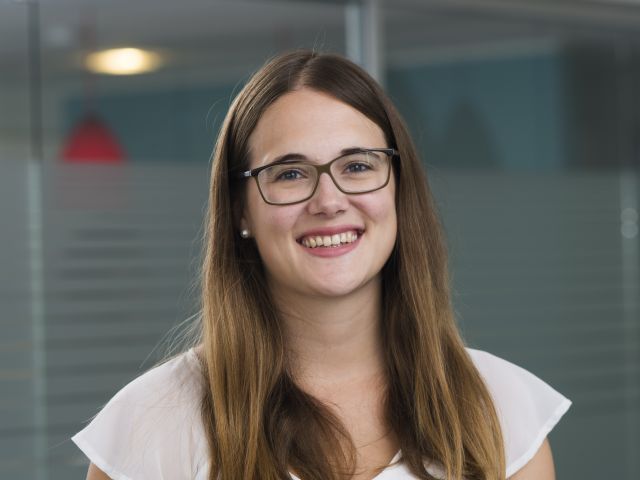

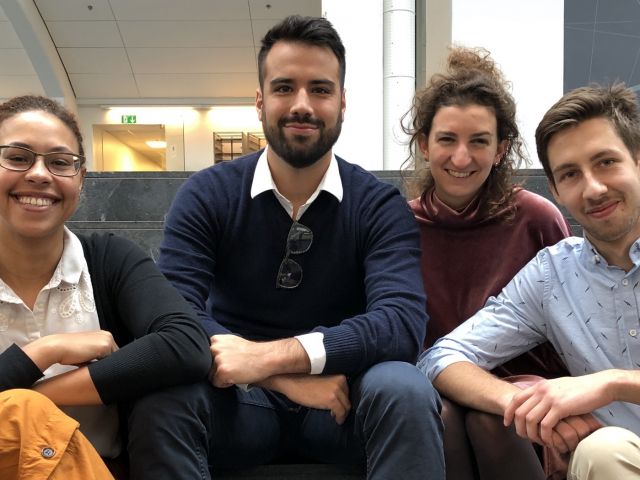
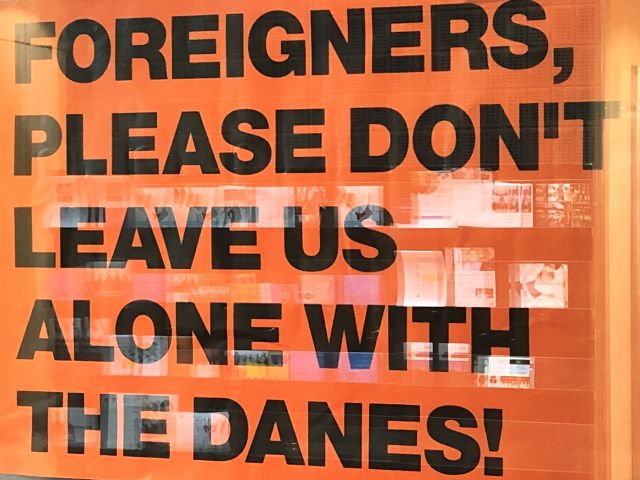






























































































































Comments